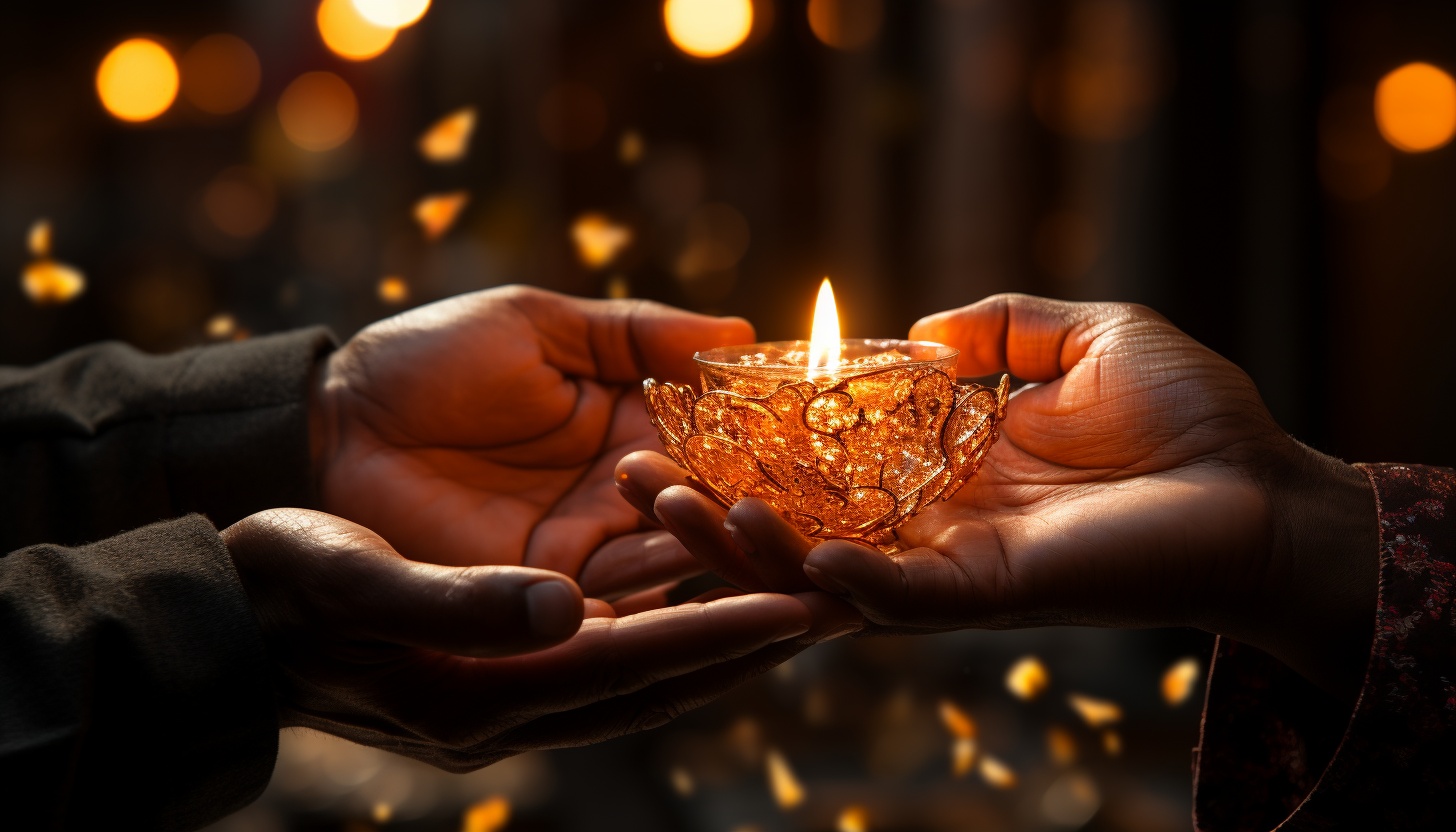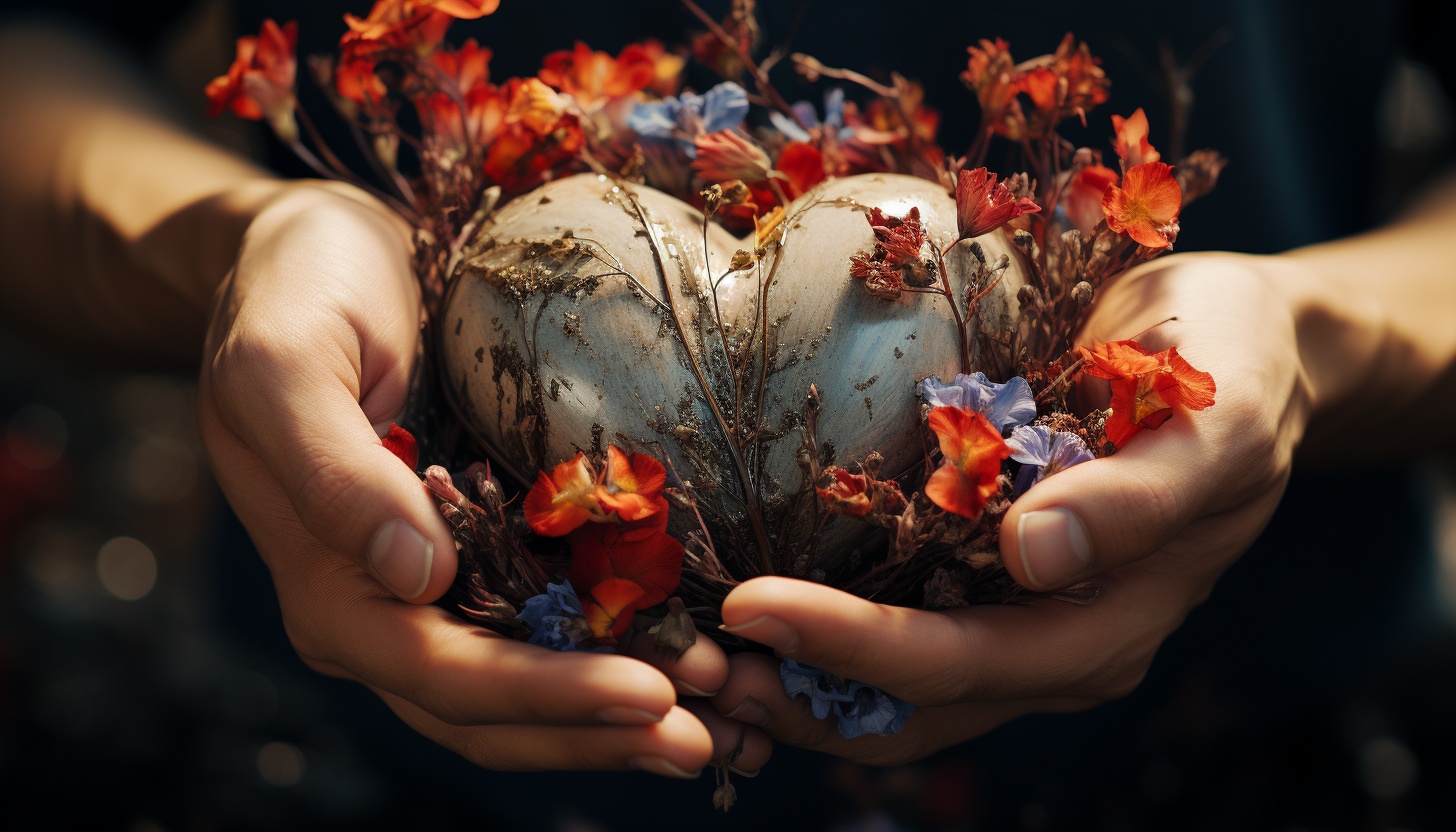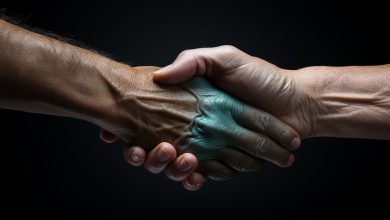
The Power of Forgiveness: Secrets to Healing Relationship Wounds
You’ve been hurt. Betrayed. The wounds from past relationships still ache within you, casting a shadow on your present.
But here’s the irony: the key to healing lies not in revenge, but in forgiveness. It’s not about forgetting, but about finding the strength to let go.
In this article, we’ll uncover the secrets to healing relationship wounds through the transformative power of forgiveness. Get ready to embark on a journey of self-discovery and healing.
The Importance of Forgiveness

Forgiveness is essential for healing relationship wounds and moving forward. When we carry around grudges and hold onto past hurts, it only weighs us down and prevents us from experiencing true healing and growth.
Forgiveness isn’t about condoning the wrong that was done or pretending that it never happened. It’s about acknowledging the pain, releasing the negative emotions, and choosing to let go of the resentment that’s holding us back.
By forgiving, we free ourselves from the chains of anger and bitterness. We open up space in our hearts and minds for healing and restoration. Forgiveness allows us to move forward with a renewed sense of peace and clarity. It empowers us to break the cycle of pain and create healthier, more fulfilling relationships.
It can be challenging to forgive, especially when the hurt runs deep. But remember, forgiveness isn’t a sign of weakness; it’s an act of strength and self-care. It takes courage to confront our pain and choose forgiveness, but the rewards are immense.
As you embark on the journey of forgiveness, be patient with yourself. Healing takes time and effort, but with each step, you’re one step closer to emotional freedom and a brighter future.
Understanding the Impact of Unresolved Relationship Wounds

Unresolved relationship wounds have a profound impact on your emotional well-being and the health of your relationships. When you carry the weight of past hurts and disappointments, it becomes difficult to fully engage in your current relationships. These unresolved wounds can create barriers, preventing you from experiencing the love, trust, and connection that you desire.
Emotionally, unresolved relationship wounds can leave you feeling stuck in a cycle of pain and resentment. The emotional scars from past hurts can affect your self-esteem, making it challenging to trust and open up to others. You may find yourself constantly on guard, fearing that history will repeat itself. This fear can lead to feelings of isolation and loneliness, as you struggle to let people in and build meaningful connections.
Furthermore, unresolved relationship wounds can also impact the health of your relationships. The pain and resentment that you carry can manifest as anger, bitterness, or even passive-aggressive behavior. This can create a toxic environment, where communication breaks down, and misunderstandings become frequent. Over time, these unresolved wounds can erode the foundation of your relationships, making it difficult to rebuild trust and intimacy.
It is crucial to acknowledge and understand the impact of unresolved relationship wounds. Only then can you begin the process of healing and moving towards forgiveness. By embracing vulnerability and opening the door to forgiveness, you can start to release the pain of the past and create space for healing and growth in your relationships.
Embracing Vulnerability: Opening the Door to Forgiveness

Opening yourself up to vulnerability is key to unlocking the power of forgiveness and healing relationship wounds. It may seem counterintuitive, as vulnerability often carries the connotation of weakness and potential harm. However, it’s in this state of openness that true healing can take place.
When you allow yourself to be vulnerable, you’re acknowledging your own humanity and inviting others to do the same. It’s through vulnerability that you can truly connect with others on a deep and authentic level. By showing your own vulnerabilities, you create a safe space for others to do the same, fostering empathy and understanding.
Embracing vulnerability also requires letting go of the need for control. It means being willing to take risks, knowing that there’s a possibility of getting hurt. But it’s in this willingness to be vulnerable that you open yourself up to the possibility of forgiveness. By releasing the need to control the outcome, you free yourself from the burden of resentment and anger.
In embracing vulnerability, you’re acknowledging that forgiveness is a process, not a destination. It requires patience, compassion, and a willingness to let go of old wounds. By opening yourself up to vulnerability, you’re taking the first step towards healing and creating space for empathy and compassion to flourish.
Transition: Now that you have explored the importance of embracing vulnerability, it’s time to delve into the healing power of empathy and compassion.
The Healing Power of Empathy and Compassion

By embracing vulnerability, you invite empathy and compassion to heal relationship wounds. When you allow yourself to be vulnerable, you open up the possibility for others to truly understand and connect with your feelings. Empathy is the ability to put yourself in someone else’s shoes and understand their emotions, while compassion is the desire to alleviate their suffering. These qualities are essential for healing relationship wounds because they create a safe and supportive environment for both parties involved.
When someone shows empathy towards you, they’re acknowledging your pain and validating your emotions. This validation can be incredibly healing, as it helps you feel understood and accepted. Compassion, on the other hand, encourages forgiveness and understanding. It allows you to see the humanity in the other person and recognize that they too are capable of making mistakes.
By practicing empathy and compassion, you can begin to rebuild trust and repair the damage caused by relationship wounds. It may not happen overnight, but with time and effort, these qualities can help heal even the deepest wounds. As you cultivate empathy and compassion within yourself, you’ll also find it easier to extend forgiveness to others.
Nurturing self-forgiveness is a crucial step in healing relationship wounds. Let’s explore how you can cultivate self-forgiveness and use it as a key to healing in the next section.
Nurturing Self-Forgiveness: A Key to Healing Relationship Wounds

To heal relationship wounds, it’s crucial to nurture self-forgiveness as it allows you to release the burden of holding onto past pain and create space for healing and growth. When you forgive yourself, you free yourself from the chains of guilt and shame, opening up the possibility of rebuilding and restoring your relationships.
Here are four practical steps to help you nurture self-forgiveness:
1. Reflect on your actions: Take the time to honestly examine the choices you made and the impact they’d on others. Recognize that everyone makes mistakes, and it’s essential to take responsibility for your part in the situation.
2. Practice self-compassion: Treat yourself with kindness and understanding. Understand that you’re human and prone to flaws, just like everyone else. Embrace your imperfections and offer yourself the same compassion you’d extend to a loved one.
3. Let go of self-judgment: Release the self-critical thoughts that keep you stuck in a cycle of guilt and self-blame. Instead, choose to forgive yourself for your past mistakes and focus on personal growth and learning from those experiences.
4. Embrace the present moment: Shift your focus from dwelling on the past to being fully present in the here and now. Use mindfulness techniques to cultivate self-acceptance and gratitude for the lessons learned from your past actions.
Conclusion
So, my dear friend, as you embark on your journey of healing relationship wounds, remember that forgiveness is the key that unlocks the door to a better future.
By embracing vulnerability, practicing empathy and compassion, and nurturing self-forgiveness, you can mend the broken pieces and rebuild a stronger connection.
Just as a flower blossoms after a storm, your relationships can flourish once again.
May the power of forgiveness guide you towards healing and happiness.






